#history of new zealand
Text
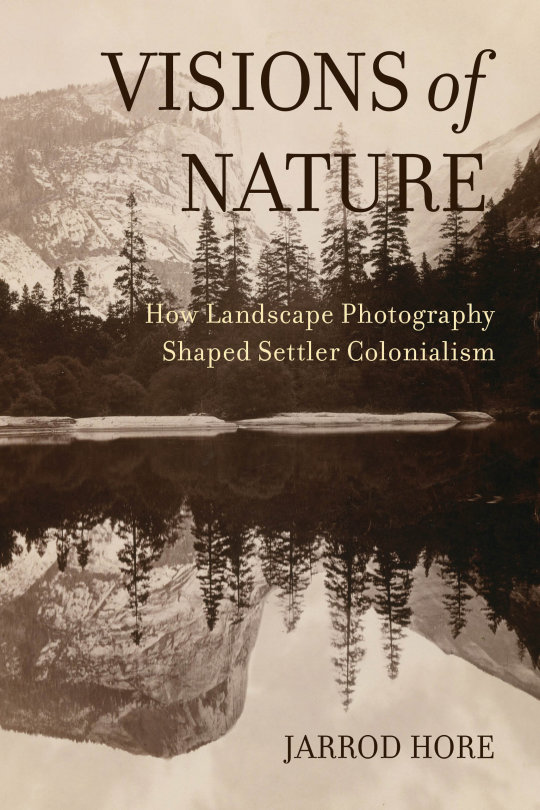
"There is nothing else quite like this book at present. Based on six early photographers' work in Australia, New Zealand, and the United States, it combines environmental history, settler colonial studies, and imperial history to explain how the image of a vast, empty wilderness, occluding Indigenous occupation and usage, was generated to create a sense of settler achievement and ownership. Essential reading for those interested in any of these fields of study."
#uwlibraries#history books#colonial history#history of photography#australian history#american history#history of new zealand#19th century
554 notes
·
View notes
Note
If you take nzpol there was that one time we threw a dildo at an mp candidate
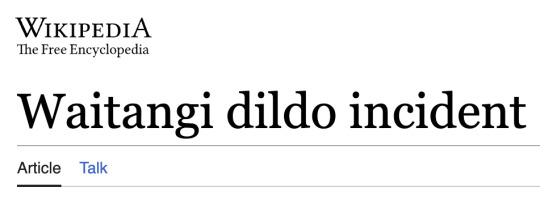
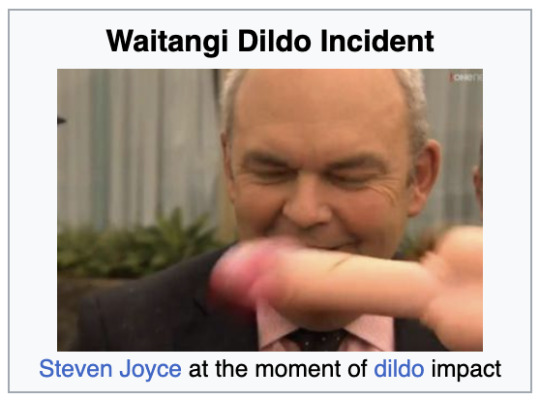
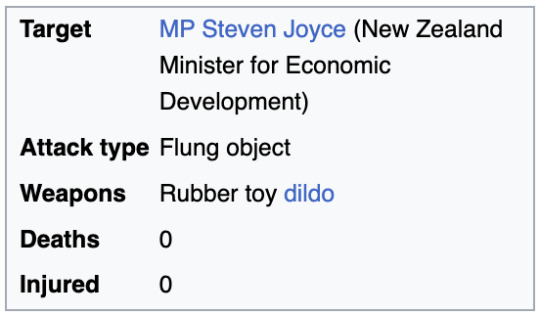
This is quite possibly the greatest Wikipedia article in existence
6K notes
·
View notes
Text

IM GAY BITCH
petitioning the 1986 homosexual reform bill, from mates & lovers (a history of gay new zealand) by chris brickell
#queer history#my fav pic from the nz archives :)#gay#lgbt#gay history#lesbian#bisexual#dog#aotearoa#new zealand#pride
7K notes
·
View notes
Text
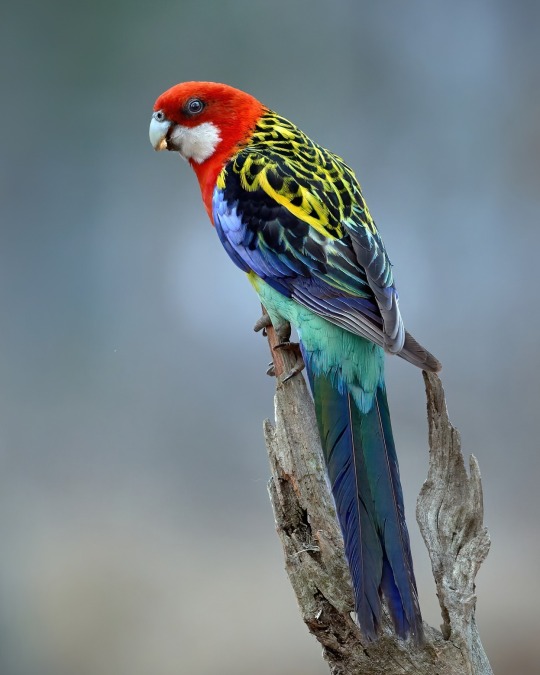
Bird lovers, behold the dazzling colors of the Eastern Rosella (Platycercus eximius)! This parrot can be found in south-eastern Australia and parts of New Zealand, where it’s known for its loud chattering calls. Growing up to 11.7 in (30 cm) long, it prefers to inhabit lightly wooded and open landscapes, like on the edge of forests. Seeds make up the majority of its diet, but it also snacks on fruit, plants, nectar—and the occasional invertebrate.
Photo: crapgame, CC BY-NC 4.0, iNaturalist
#science#nature#natural history#animals#birds#ornithology#new zealand#australia#did you know#fact of the day
895 notes
·
View notes
Text
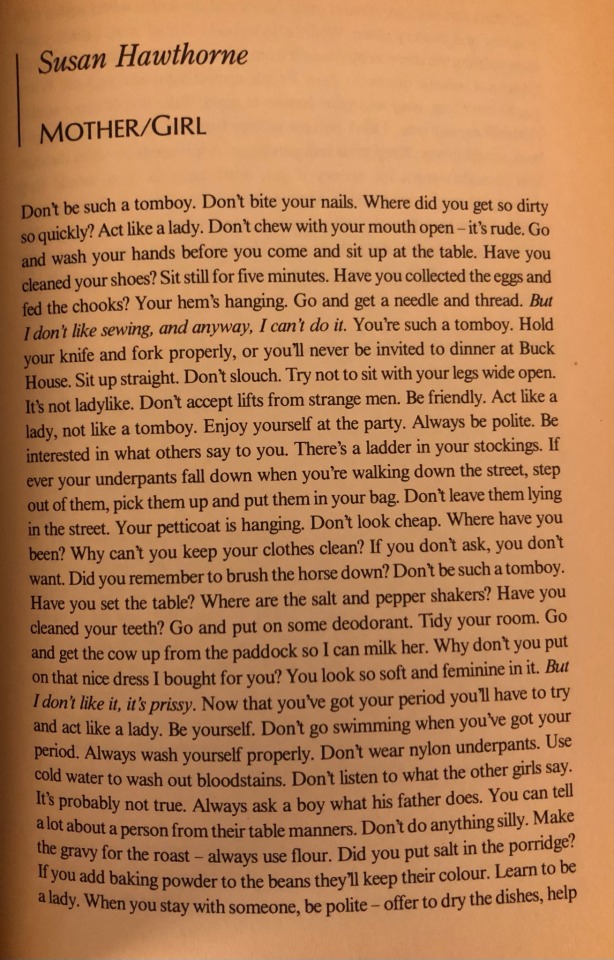
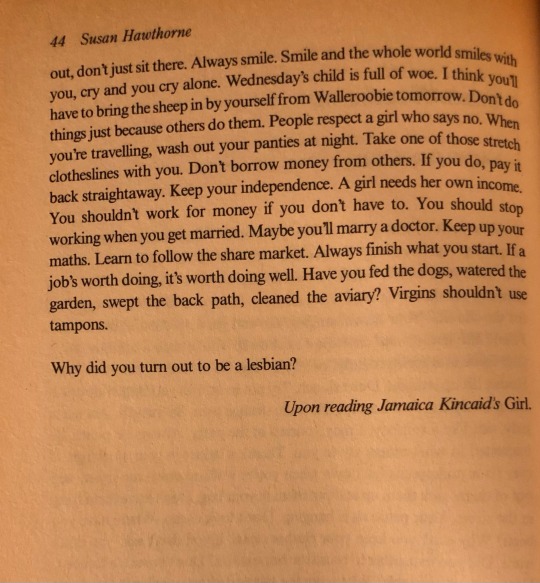
Source: The Exploding Frangipani ; Lesbian Writing From Australia and New Zealand -edited by Cathie Dunsford and Susan Hawthorne
#butch childhood#butch lesbian#butch experience#tomboy#lesbian history#lesbian writings#lgbt#lesbian#Australian lesbian history#New Zealand lesbian history#lgbt history#personal#mother daughter relationship
548 notes
·
View notes
Text

Hiking and camping in Fiordland.
New Zealand
1980
#vintage camping#campfire light#fiordland#new zealand#camping#hiking#travel#outdoors#history#exploring#fishing
1K notes
·
View notes
Text
i never completely lose interest in anything. if i have become fixated on something at one point in time, there will always be the possibility of me becoming obsessed with it again. all it takes is something to trigger my memory and BAM that thing i loved in 6th grade is the only thing i can think about.
all of my interests float around in my head and compete to be in the forefront of my mind. right now i’m thinking about puppet history, spirk, avatar the last airbender, and the country of new zealand. i am a force to be reckoned with.
#i never stop liking anything#unless it’s like super problematic or i realize it was dumb or whatever#but my hpfxes mostly stay. they just stay dormant for a little while#adhd#neurodivergent#hyperfixations#puppet history#star trek#spirk#avatar the last airbender#atla#watcher entertainment#jim kirk#spock#… new zealand 😭#new zealand#LMFAO#funny#gemini#gemini mercury
2K notes
·
View notes
Text
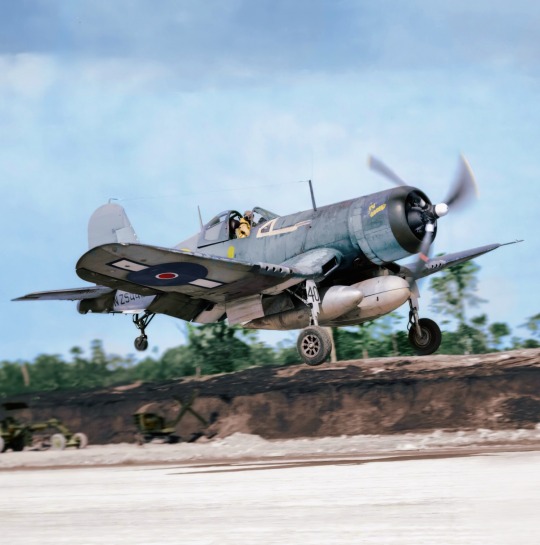
F4U-ID, Royal New Zealand Air Force.
It survived the war only to be melted down for scrap in 1948
#aircraft#airplane#ww2#wwii#aviation#dronescapes#corsair#aviation photography#colorized#colorisation#f4u corsair#aviation history#warbird#kiwi#new zealand
339 notes
·
View notes
Photo
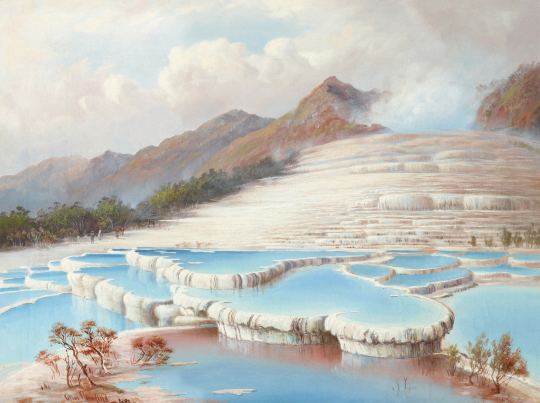
White Terraces, 1882, Auckland, by Charles Blomfield
shared by Museum of New Zealand - Te Papa Tongarewa
405 notes
·
View notes
Text
it's te pūtake o te riri today, the national day of commemoration for the nz wars
#i didn't even know te pūtake o te riri existed...#i wonder if it's talked abt less here in the south#amyway it's still the right day and since I've discovered this it feels right to share these links#and also it's true that i don't know much abt the nz wars. I've heard that even ppl who finish hs having taken history don't...#*anyway#i should probably tag? i guess?#new zealand#te pūtake o te riri#nz politics#nz history#aotearoa
277 notes
·
View notes
Text

"Alexandra Roginski’s book is a rich and thoughtful study of knowledge-making and science on the move. Sensitive to the particularities of place, she offers a reading of colonial science in Australasia that traces the centrality of difference in the construction and performance of knowledge in the bush, in towns, and growing cities. This book immerses us in a world of popular science and dramatizes the importance of phrenology in struggles over power, authority and cultural identity at the edge of the British empire."
#uwlibraries#history books#australian history#history of science#history of new zealand#19th century
3 notes
·
View notes
Text
August, 2017: Deputy Prime Minister of Australia, Barnaby Joyce, is forced to resign from parliament after it is revealed he is a citizen of New Zealand.
New Zealand makes light of the situation by nominating him for New Zealander of the Year
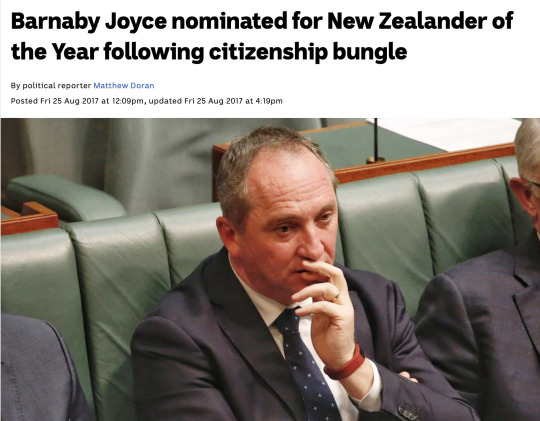
5K notes
·
View notes
Text
On This Day In History
August 16th, 1975: Filmmaker and actor Taiki Waititi was born.
#history#taika waititi#what we do in the shadows#jojo rabbit#thor#new zealand#aotearoa#our flag means death#reservation dogs
229 notes
·
View notes
Note
*slides you money* I heard you were three seconds from a treatise on David Lange and Mururoa and the Rainbow Warrior?
BY POPULAR DEMAND (ok you and like three other people asked)...
The core fact that you gotta know if you want to talk about New Zealand and nuclear weapons is that campaigning for nuclear disarmament and maintaining a legal nuclear-free zone in our territorial waters has been the core of our independent foreign policy as a country for nearly forty years, since the mid-1980s. This developed over the 60s and 70s from a popular groundswell of anti-nuclear sentiment focused around continued atmospheric nuclear testing in the Pacific by France as well as visits from nuclear-powered (and potentially nuclear-armed) American warships. It evolved into government action; left-wing governments took France to court to demand an end to testing and sent naval frigates to the nuclear test area to protest with Government ministers on board.
This was crystallised in 1985 when a photographer was killed in the state-sponsored terrorist bombing of the Rainbow Warrior, a Greenpeace ship conducting protests at the French nuclear test site of Mururoa. The bombing was carried out by French spies who were decorated when they returned to France (after France promised they would be jailed) and led to a prolonged diplomatic rift between New Zealand and France. The subsequent passing of nuclear-free legislation in 1987, banning nuclear-powered or armed ships visiting our waters, led to New Zealand's suspension from the ANZUS (Australia, New Zealand, and the United States) military alliance.
David Lange, the Prime Minister at the time, opined famously that "The only thing worse than being incinerated by your enemies, is being incinerated by your friends." The ban still has such wide bipartisan support that it's simply not on the table now for even our right-wing parties; infamously, in the early 2000s one Leader of the Opposition told an American congressional delegation that the ban would be 'gone by lunchtime' if he became Prime Minister. This wasn't the DIRECT cause of his eventual toppling but it certainly didn't help. Nobody else has gone near it since.
I am, however, excrutiatingly aware that while our nuclear-free stance is viewed internally by New Zealanders as central to our national identity - there's a well-known song and it was even controversially used this year in a beer ad as a signifier of national pride - nobody else remembers. Particularly the Americans and the French. Seared into my brain is Scott Brown (yes that one) arriving here as the new US Ambassador in 2016 and going on the radio to talk earnestly about how Kiwis didn't realise that nuclear fallout wasn't restricted by national borders, c.f. North Korea, as if anti-nuclear campaigning wasn't...well...see all of the above. READ YOUR GODDAMN BRIEFING PACKETS ON THE PLANE, SCOTT, IT'S A FOURTEEN-HOUR FLIGHT.
So what does that mean for the Locked Tomb books?
As the linked article about the beer ad notes, anti-nuclear protesting has been a site not only of national identity formation but specifically Indigenous protest in the Pacific. It is Pasifika peoples who have borne the brunt of nuclear testing and much of the early anti-nuclear movement in Aotearoa was led by Māori and Pasifika, and closely tied to the anti-apartheid movement which focused on the removal or restriction of Māori and Pasifika rugby players on tours to apartheid South Africa.
In Nona the Ninth, it becomes clear that John (a Māori man) and G- (whose ethnicity is not specified but 'reads' as most likely Māori or Pasifika in context), as well as their friends, blackmailed the US government for a suitcase nuke and eventually used it to bomb Melbourne, with John then causing nuclear armageddon around the world. This is, uh, emphatically not the same thing as "Twitch streamers [John & co] nuking New Zealand", as chill as I generally am with the eliding of detail for joke posts. This is a Māori man from and in New Zealand nuking first Australia and then the rest of the world.
This is, obviously, if you're coming from the historical context, hugely transgressive in a way I can only describe as a...horror of agency? The horror of saying, what if we were willing to do the thing that we identify ourselves as a nation as being against under all circumstances? What if instead of standing nobly against nuclear weapons, for reasons of moral indefensibility, we were the ones to pull the trigger? What if our culture and our people survived the apocalypse because one of us started it, instead of us surviving by virtue of being so small, so on the edge of the world, so carelessly left off world maps?
And as to why it matters that it's Melbourne - New Zealand has a...complicated relationship with Australia that's hard to directly parallel to anywhere else (it's sort of like Canada and the US but also not like Canada and the US in any way that Canadians or Americans ever interpret that statement in my experience). In particular, there is huge anxiety in Australia about New Zealand as a source of non-white (and specifically Māori and Pasifika) emigration to Australia. Australian immigration policy, while technically retaining free movement between the two nations, has grown more and more restrictive over the last twenty years. Right now the central point of conflict is a policy of deporting mostly Māori and Pasifika New Zealand-born prisoners back to New Zealand on completion of their sentences, regardless of how old they were when they came to Australia, resulting in a large body of traumatised people with zero community ties being dumped back here and - no surprises! - frequently turning to crime. There's A Lot Going On There. Added to which the Christchurch mosque shooter deliberately travelled here from Australia to carry out his terrorism. And yet also, hundreds of thousands of us live there and many more have relatives and friends there.
And Melbourne? Melbourne is like....the cool Australian city, if you're a New Zealander. Sydney is too big (the same population as our whole country!) and too...everything, Brisbane and the Gold Coast are tropical and so kinda weird, Adelaide and Perth? we don't know them, but Melbourne is aspirational. Melbourne is the kind of city Wellington and Auckland would like to be when they grow up, maybe. They have laneways and culture and a working tram system. But it's also a very...white kind of cool. The kind enjoyed by rich Pākehā who can afford to go on weekend shopping holidays there.
So yeah. John and G- and the crew nuke Melbourne and it's a nexus of all these tensions old and new, of who we think we are as people and as a nation, of how we relate to Australia which is our friend and nearest neighbour and our rival and our scapegoat (because they're the really racist ones, aren't they? If we say that loud enough, does it drown out the sounds of our own sins?)
It's a fantasy of power and a horror of it at the same time. I hope someone right now is writing a monograph on this, there's so much to dig into. But it deserves to be framed as what it is, as a response from a Kiwi author to our own history and identity. It deserves to be understood in context.
729 notes
·
View notes
Photo

Ocean Beach, Dunedin, New Zealand, late 1950s
Hardwicke Knight photographer. Copied from 35mm Kodachrome slide
783 notes
·
View notes
Text
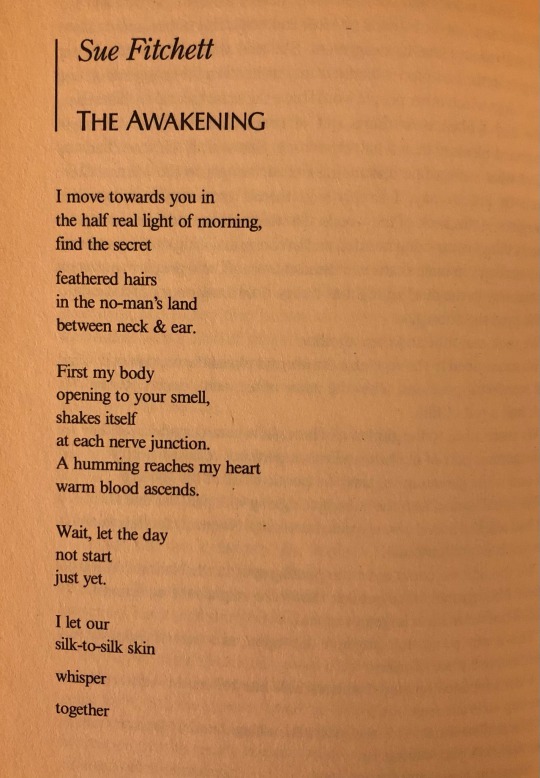
Source: The Exploding Frangipani ; Lesbian Writing From Australia and New Zealand -edited by Cathie Dunsford and Susan Hawthorne
#lesbian poem#lesbian poetry#lesbian writing#lesbian history#lgbt#image#lesbian#photo#personal#Australian lesbian history#New Zealand lesbian history
85 notes
·
View notes